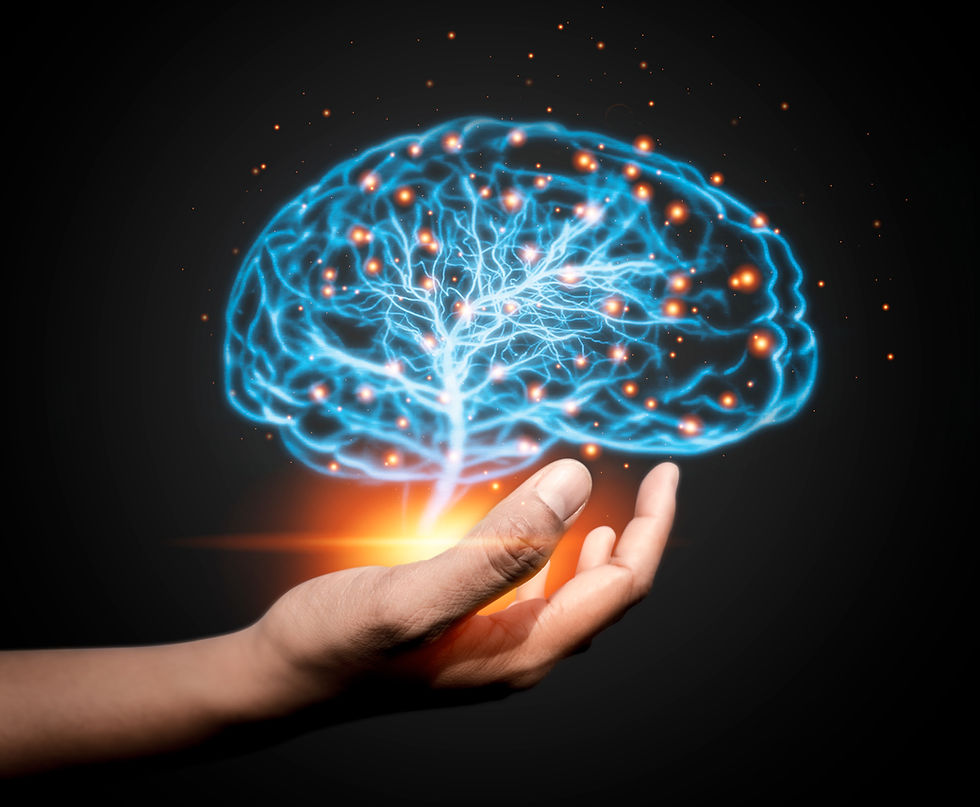Do Emotions Spark Learning?
- Nanci Bradley
- Oct 29, 2022
- 3 min read

Do you believe that emotions spark learning?
I do. And my ideas are supported by current brain research.
If you're in charge of young children, especially in the first few years of their lives, you're in charge of providing the best emotional development you can because experiences at this level of really do matter and they matter more than anyone ever expected.
The reason we know this now is because of advanced neurological imaging techniques that can show us where brain activity happens and how synapses connect to reach other areas of the brain and form new pathways for learning.
A synapse is produced when the axon of one neuron connects with the dendrite of another. Transmission of an electrical signal across this hookup requires a neurotransmitter chemical such as serotonin, dopamine, or the endorphins. - Rima Shore and the Families and Work Institute-
Human development hinges on the interplay between nature and nurture. Development depends on emotionally responsive caregiving. (Shore, 1997) These findings are further reinforced by The Harvard Center For The Developing Mind

In the first few years of life, more than 1 million new neural connections form every second. After this period of rapid proliferation, connections are reduced through a process called pruning, which allows brain circuits to become more efficient. In light of these findings, focusing on early childhood only makes sense. -Center for the Developing Child, Harvard University-
If focusing on the first few years of life makes sense, why isn't it happening in the US? There are a myriad of reasons that all come down to money and power. Interesting to note because it's been proven over and over again that we could save billions in the long run by putting more effort into the early years.

Come with me on an emotional magic carpet ride to a land where people understand that differences can be helpful and they work together to solve problems using the gifts and resources they have available to them at any given moment in time. A land where blame, bias and bullying are things of the past and they're replaced by problem-solving, curiosity and assertiveness.

Dear Parents, Teachers and Other Educators,
We can make this happen. But we need more support. You and I know this but we're stuck between a rock and a hard place. That's why we need each other.
Most of us don't have the time and energy to fight for what our children need because we're so busy caring for them. That's why parents and teachers need to band together and do something.
For now, I'm only asking you to do one quick thing in order to help and it doesn't cost a cent.
Join the hundreds of others on this mailing list. You'll receive one supportive email each week and you'll get an awesome slideshow right away, called How To Get You Kid To Listen Without Yelling Or Time-Outs. The slideshow is worth either a million dollars or 9.99 depending on who you talk to!
If you like the slideshow, ask parents and other educators to join us so they can get theirs too.
Its a boiled down version of over 40 years of childcare study and experience that you can use instantly. These are all developmentally appropriate words that are proven to really work. It also includes developmental reasons why so it can be really helpful when trying to explain your methodology to others.
Thank you so much for reading this,
Nanci

Nanci J Bradley is an early childhood and family educator, author, teacher, family aerobics instructor, and an all-around fun-loving person. She believes in the power of sleep, healthy eating, lifelong learning, and most of all, PLAY! She studied early childhood ed at Triton College and received her BS in education in 1986 from NIU. She received her MA in human dev from Pacific Oaks College in 2011. She lives and teaches in Madison WI and is the founder of early childhood rocks, a non-profit org dedicated to creating change through early childhood education.
citations
“Center on the Developing Child at Harvard University.” Center on the Developing Child at Harvard University, 4 Dec. 2017, https://developingchild.harvard.edu/.
Shore, Rima. Rethinking the Brain: New Insights into Early Development. Families and Work Institute, 2003.





Comments